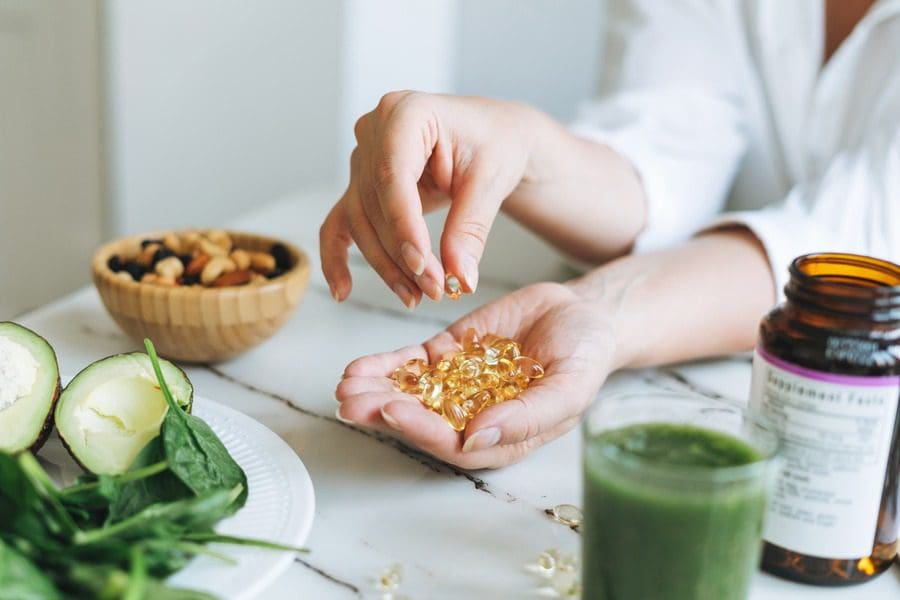You might have vivid memories of taking Flintstones vitamins as a kid, but as you get older, getting the proper nutrients becomes a little more complicated. If you’re unsure where to start, we’ve created the following guide to vitamins and supplements.
What Are Vitamins and Supplements?
A vitamin is a substance your body needs to develop and function normally. In fact, pretty much any body movement is made possible by vitamins and minerals. There are a lot of foods out there that claim to be good sources of vitamins, but sometimes storing, cooking, and even exposing food to air can decrease its vitamin content. A vitamin is just one type of supplement you can take to increase your consumption of nutrients when you are not getting them through your regular diet. For example, taking a daily multivitamin can fill in any gaps in vitamins you might be experiencing.
Benefits of Taking Vitamins and Other Supplements
- Vitamins promote healthy aging. The older we get, the harder it is for our bodies to absorb nutrients.
- Vitamins boost heart health. Combine certain vitamins with a heart-healthy diet, and your cardiovascular system should thank you.
- Vitamins support a healthy immune system.
- Vitamins help keep your skeleton strong. We know that our body needs calcium, but calcium can’t do its job without vitamin D.
- Vitamins help your skin glow and your hair grow. If you’re suffering from eczema, dry skin, or acne, there may be a vitamin out there that could help.
- Some medications can drain the body of nutrients, so a way to combat this is by, you guessed it, taking your vitamins.
A Guide to Common Vitamins and Supplements
- Vitamin A: Also known as retinol, vitamin A can help fight infections, support healthy vision, keep your skin glowing, and strengthen bones and teeth.
- Vitamin B: If you find yourself dragging throughout the day, B vitamins (there are several) may be just what your body needs since they are responsible for turning food into energy. Other benefits may include maintaining normal brain function and memory, improving cholesterol, reducing the risk of heart attack and stroke, and assisting with normal blood cell production.
- Vitamin C: This water-soluble vitamin can help promote healthy tissue growth, reduce the risk of infections, and strengthen bones and teeth.
- Vitamin D: Vitamin D is a fat-soluble vitamin activated by UV light. It’s not uncommon for people to experience vitamin D deficiency. Benefits of vitamin D include maintaining nervous system functions, supporting bone health, and regulating blood levels of calcium and phosphorus.
- Vitamin E: This vitamin is important for organ function and maintaining muscle control, plus it can reduce the risk of cancer, heart disease, and Alzheimer’s.
- Vitamin K: Vitamin K is essential for blood clotting, which helps wounds heal significantly faster. It can also support strong bones and protect against heart disease.
- Calcium: Calcium builds strong bones, but it can also help improve muscle function, support healthy blood pressure, and aid in hormone secretion.
- Iron: If you’re a vegan or vegetarian, having an iron deficiency isn’t uncommon. Iron is a mineral that helps bring oxygen to our blood, so vital in ensuring the body is carrying out important processes. Other benefits of iron include improved brain function and increased energy.
- Zinc: Benefits of taking zinc may include decreasing your risk of cancer, improving the immune system and memory, and reducing cold symptoms.
Do you take daily vitamins or supplements? Do you think they help? Share your thoughts with us in the comments below.






